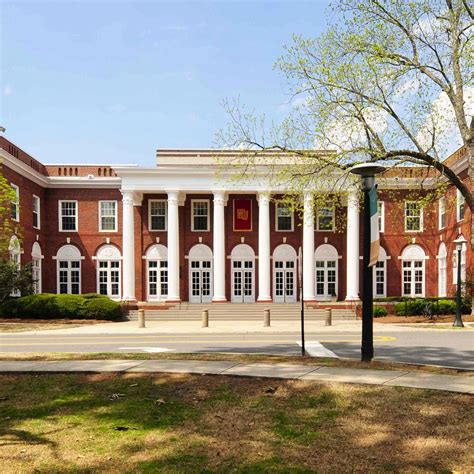Understanding the cost of attending college is crucial for making informed decisions about higher education. This article delves into the various expenses associated with Winthrop University, providing a comprehensive overview to help you plan for your academic journey.

Tuition and Fees: The Cornerstone of Educational Expenses
Tuition and fees constitute the foundation of Winthrop University’s financial structure. For the 2023-2024 academic year, in-state undergraduate students can expect to pay $12,910 in tuition and $2,350 in fees, totaling $15,260. Out-of-state undergraduates face a slightly higher cost of $27,730 in tuition and $2,350 in fees, amounting to $30,080.
Graduate tuition varies depending on the program of study. Master’s programs typically range from $525 to $850 per credit hour, while doctoral programs cost between $650 and $1,000 per credit hour.
Room and Board: Essential Living Expenses
Housing and meals are other significant expenses to consider. Winthrop University offers various on-campus housing options, including residence halls, university apartments, and family housing. The cost of a double room in a residence hall starts at $5,425 per academic year, while a single room costs $6,530. University apartments are available for upperclassmen and graduate students, with rents ranging from $6,270 to $7,430 per year.
Meal plans are required for all students living on campus. The most basic plan provides 10 meals per week and costs $2,025 per academic year. The most comprehensive plan offers unlimited meals and costs $3,150 per year.
Other Expenses: Beyond Tuition and Housing
Beyond these core expenses, students should also budget for additional costs such as:
- Books and supplies: $1,000-$2,000 per year
- Transportation: $500-$1,500 per year
- Personal expenses: $1,000-$2,000 per year
- Health insurance: $1,000-$2,000 per year (if not covered by a parent’s plan)
Financial Aid: A Lifeline for Affordability
Winthrop University offers various financial aid options to help students manage these costs. The university awards need-based grants, scholarships, and loans to students who qualify. In 2022-2023, over 6,000 Winthrop students received financial aid, totaling more than $30 million.
The Free Application for Federal Student Aid (FAFSA) is the first step in determining eligibility for financial aid. Students are encouraged to submit their FAFSA early, as funding is limited and awarded on a first-come, first-served basis.
Strategies for Cost Optimization
- Seek scholarships and grants: Explore external scholarships offered by private organizations and foundations. Apply early and submit strong applications to increase your chances of receiving awards.
- Consider work-study programs: Work-study programs allow students to earn money to cover expenses while attending school. These jobs are typically on-campus or with community organizations.
- Attend in-state: In-state tuition rates are significantly lower than out-of-state rates. Consider attending Winthrop University if you are a South Carolina resident to save on tuition costs.
- Live off-campus: Off-campus housing can be more affordable than university housing. Explore nearby apartments or shared housing options to reduce your living expenses.
- Use public transportation: Utilizing public transportation instead of owning a car can save on gas, insurance, and maintenance costs.
Common Mistakes to Avoid
- Ignoring the cost: Don’t underestimate the expenses associated with college. Plan and budget carefully to avoid financial stress down the road.
- Overestimating financial aid: Financial aid is not guaranteed and may not cover all your expenses. Be realistic about the aid you can receive and explore alternative funding options.
- Taking on too much debt: Be mindful of the amount of student loan debt you accumulate. Consider working part-time or pursuing scholarships to minimize your loan balance.
- Not planning for long-term expenses: Consider expenses beyond the first year of college, such as graduate school or professional development. Start saving early to avoid unexpected financial burdens.
- Skipping on health insurance: Health insurance is a critical expense that should not be overlooked. Ensure you have adequate coverage to prevent unexpected medical bills.
Why the Cost Matters: The Return on Investment
Investing in higher education is a significant financial commitment, but it can also lead to substantial long-term benefits. According to the College Board, individuals with a bachelor’s degree earn on average $1 million more over their lifetime.
A Winthrop University degree provides a solid foundation for success. The university offers a wide range of academic programs, including STEM, business, and education, which are in high demand in the job market. Graduates are also well-prepared for graduate school, with many pursuing advanced degrees in law, medicine, and other fields.
Conclusion
Winthrop University offers a high-quality education at a reasonable cost. By understanding the various expenses involved and exploring financial aid options, students can make informed decisions about their higher education investment. Remember that the cost of college is not just about the tuition and fees; it encompasses housing, books, supplies, and other essential expenses. With careful planning, students can optimize their financial situation, minimize debt, and maximize the return on their educational investment.
